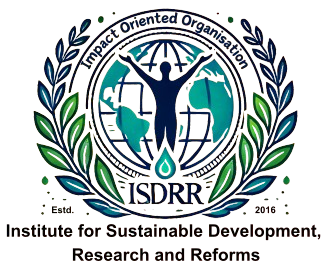
Need for Early Childhood Education: Laying the Foundation for Lifelong Learning
Early childhood education (ECE) is a pivotal stage in a child's development, encompassing the period from birth to six years of age. During these formative years, children undergo rapid brain and cognitive development, shaping their future learning, behaviour, and overall well-being. This phase serves as the cornerstone for lifelong learning and holistic development, making ECE an indispensable element of a child's upbringing.
The Prime Time for Learning
Research indicates that a child’s brain develops to 90% of its adult size by the age of five, highlighting the critical nature of these early years. Structured and unstructured play during this time helps children build essential skills such as critical thinking, problem-solving, and creativity. Programs designed with hands-on activities and interactive learning environments can stimulate intellectual growth while fostering a genuine love for learning.
Social and Emotional Development
Early childhood education is equally vital for developing social and emotional skills. Group activities and collaborative play offer opportunities for children to build relationships, learn empathy, and understand emotional bonds. These experiences teach them how to express feelings and resolve conflicts effectively. A strong emotional foundation nurtured through ECE leads to healthier relationships and enhanced emotional intelligence, both of which are crucial for success in later life.
School Readiness and Academic Success
One of the most profound benefits of ECE is its role in preparing children for school. Children who attend quality ECE programs often begin their academic journey with better literacy skills and adaptability to structured environments. They exhibit stronger attention spans and a readiness to engage in learning, resulting in higher academic achievements and sustained motivation throughout their education.
Studies consistently show that children with access to quality ECE are less likely to drop out of school or engage in delinquent behaviour. Furthermore, they are more likely to achieve higher incomes as adults and contribute positively to society, showcasing the long-term benefits of a solid early educational foundation.
Enhancing Inclusivity and Accessibility
Despite its significance, access to quality ECE remains a challenge for many children worldwide, especially those in marginalized and underserved communities. Social and economic barriers often limit learning opportunities, underscoring the need for policies that promote universal access to ECE. Inclusive, context-relevant programs tailored to diverse family needs can bridge these gaps and ensure that every child has the opportunity to thrive.
Conclusion
Early childhood education is far more than a preparatory step for primary schooling—it is a transformative process that shapes a child’s future trajectory. By fostering cognitive, social, and emotional development, ECE establishes a strong foundation for lifelong success.
Investing in quality early education programs benefits not only the children and their families but also society as a whole, driving progress and equity. As we recognize the significance of the early years, it becomes essential to advocate for accessible, high-quality, and inclusive ECE programs. These efforts ensure that every child, regardless of their background, has the chance to flourish, laying the groundwork for a brighter, more equitable future.
